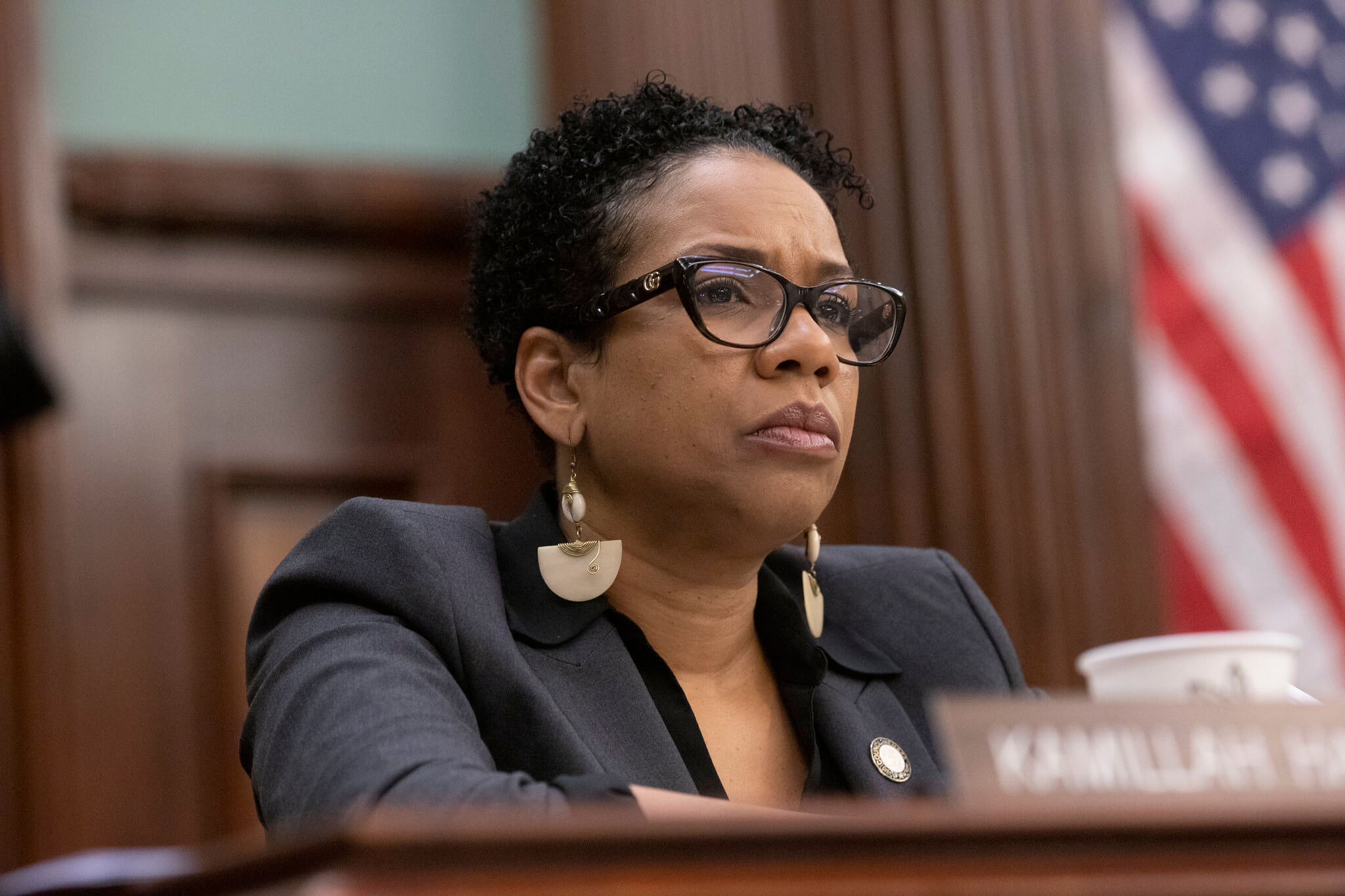Mar. 14, 2023 By Ethan Stark-Miller
Mayor Eric Adams on Tuesday signed two bills into law designed to support and hold accountable nonprofits participating in the city’s violence interrupter network, known as the Crisis Management System (CMS).
Adams also signed legislation to establish a “juvenile justice board,” require the city to provide mental health services to those living in family homeless shelters and lower interest rates for small homeowners in property tax payment plans.
The CMS deploys teams of violence interrupters to high gun violence areas, who work to mediate disputes and stop them from escalating into violent incidents, according to the city. They also connect individuals most likely to be involved with gun violence to supports like job training, mental health and legal services.
“Our crisis management system and our violence interrupters are doing the sacred work on the ground, day-in and day-out,” Adams said during a bill-signing ceremony at City Hall on Tuesday morning.
“They are working with our communities and they continue to contribute to making them safe and we want to ensure that they are performing at their full capacity,” he continued. “We want to see how we can duplicate their efforts through the city and help improve their work. And these two bills help us do that.”
One bill, Intro. 439, sponsored by City Council Member Nantasha Williams (D-Queens), would mandate the Mayor’s Office of Criminal Justice (MOCJ) review and report on the performance of nonprofits participating in the CMS, as well as those offering other city-taxpayer funded criminal justice services.
The other CMS-related piece of legislation, Intro. 756, carried by Council Member Kamillah Hanks (D-Staten Island), stipulates the city’s Office for Neighborhood Safety and the Prevention of Violence — in consultation with MOCJ — must offer training and operational guidance to violence interrupter organizations. That includes training on service delivery, nonprofit administration and capacity building as well as finding referrals for groups who need help with their finances or staffing.

City Council Member Kamillah Hanks.Credit John McCarten NYC Council Media Unit
“Having founded my own not-for-profit years back, I can understand and appreciate the challenges in running an organization while delivering the much needed services to our community,” Hanks said.
“This bill represents a significant achievement in strengthening our Crisis Management System and creating safer communities for all New Yorkers,” she added. “Investing in their capacity and operations will ensure that they have the tools they need to reduce gun violence and to promote conflict resolution.”
The legislation could potentially help CMS violence interrupter nonprofits like Man Up Inc., a Brooklyn-based group founded and run by Andre T. Mitchell — who the mayor tapped to co-chair a citywide gun violence prevention task force along with First Deputy Mayor Sheena Wright last June.
Man Up entered into a corrective action plan (CAP) with MOCJ in 2019 following findings of nepotism and financial impropriety at the organization by the city Department of Investigation (DOI) that same year. Mitchell attributed the group’s issues to his lack of knowledge on how to properly manage a nonprofit when he first founded the organization in 2003, during an interview with amNewYork Metro last fall.
“We were a young grassroots organization,” Mitchell said at the time. “We’re based out of East New York, Brooklyn, that’s where we founded ourselves, where all of the resources and all the knowledge and information as to how to run nonprofits was not something that I had access to. I got into this without any real prior education and knowledge of how to run a nonprofit.”
City Hall told amNewYork Metro last fall that Man Up had turned things around by meeting all the CAP’s requirements.